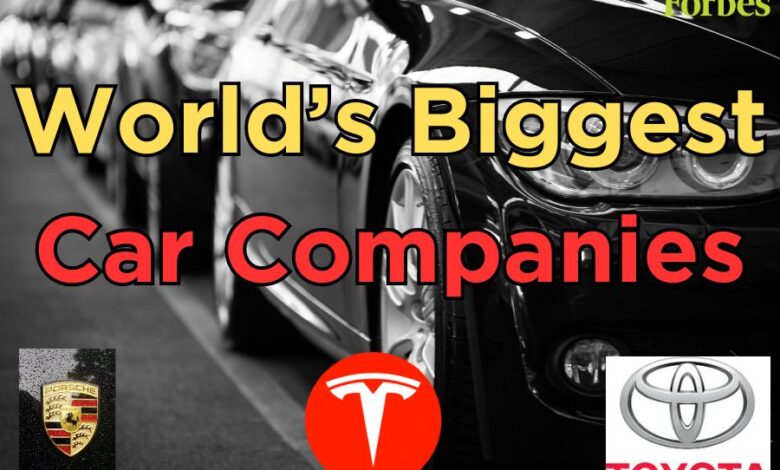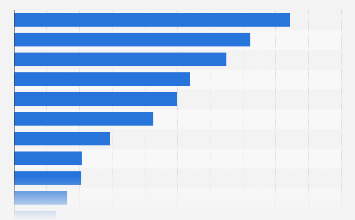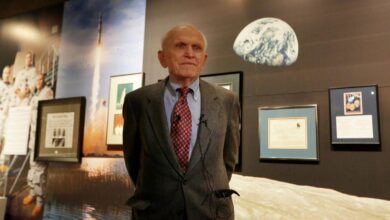Top 10 Biggest Car Manufacturers In The World 2024

Let’s delve into the world’s biggest car companies based on market capitalisations. In the process, we learn a little about these automotive giants and understand what propels them to the forefront of the global automotive industry. From electric vehicle pioneers to luxury sports car manufacturers, these companies represent the epitome of innovation, performance, and excellence in the automotive world.
Top 10 car companies in the world
Check out the top 10 car companies in the world based on market capitalisation as of May 20, 2024.
| Rank & Car Company | Market cap (in USD) |
|---|---|
| #1 Tesla | $565.95 bln |
| #2 Toyota | $298.14 bln |
| #3 BYD | $87.54 bln |
| #4 Porsche | $81.68 bln |
| #5 Mercedes-Benz | $79.23 bln |
| #6 Ferrari | $75.02 bln |
| #7 Volkswagen | $72.29 bln |
| #8 Stellantis | $68.74 bln |
| #9 BMW | $66.40 bln |
| #10 Xiaomi | $63.71 bln |
It’s time for further insights into the top car companies in the world.Also Read: Safest cars in India with best Global NCAP Rating: From Tata Harrier to Punch and Mahindra XUV 300
Tesla
- Founder: Elon Musk
- Headquarters: Austin, US
Tesla, founded by Elon Musk, has revolutionised the automotive industry with an array of electric vehicles and sustainable energy solutions. Known for its groundbreaking technology, Tesla produces popular models like the Model S, Model 3, Model X, and Model Y, alongside advancements in battery technology and autonomous driving.
Toyota
- CEO: Kōji Satō
- Headquarters: Toyota City, Japan
Toyota stands as a symbol of reliability and efficiency in the automotive world. As one of the largest automakers globally, Toyota produces a wide range of vehicles, from fuel-efficient hybrids like the Prius to rugged trucks like the Tacoma. With a commitment to quality and innovation, Toyota continues to shape the future of mobility.Also Read: Top 10 best selling cars in India
BYD
- CEO: Wang Chuanfu
- Headquarters: Shenzhen, Guangdong, China
BYD (Build Your Dreams) is a leading Chinese automaker specialising in electric vehicles, batteries, and renewable energy solutions. With a strong emphasis on sustainability, BYD is committed to making electric transportation accessible to all. From electric cars and buses to energy storage solutions, BYD is driving the transition to a greener future.
Porsche
- CEO: Oliver Blume
- Headquarters: Stuttgart, Germany
Porsche is renowned for its luxurious and high-performance sports cars, representing the epitome of automotive engineering and design. From the iconic 911 to the Cayenne SUV, Porsche vehicles blend power and precision, offering an exhilarating driving experience. As part of the Volkswagen Group, Porsche continues to push the boundaries of automotive excellence.
Mercedes-Benz
- CEO: Ola Källenius
- Headquarters: Stuttgart, Germany
Mercedes-Benz is synonymous with luxury, craftsmanship, and technological innovation. From elegant sedans to powerful SUVs and high-performance AMG models, Mercedes-Benz vehicles exemplify sophistication and engineering excellence. With a legacy spanning over a century, Mercedes-Benz continues to set new standards in automotive luxury.Also Read: Top 10 most expensive cars in the world in 2024
Ferrari
- CEO: Benedetto Vigna
- Headquarters: Maranello, Emilia-Romagna, Italy
Ferrari is synonymous with passion, performance, and exclusivity in the automotive world. Ferrari is a manufacturer of iconic supercars and racing legends and represents the pinnacle of Italian automotive craftsmanship. With a racing heritage and a commitment to uncompromising quality, Ferrari continues to captivate enthusiasts worldwide.
Volkswagen
- CEO: Oliver Blume
- Headquarters: Wolfsburg, Lower Saxony, Germany
Volkswagen is one of the world’s largest automakers. It is known for its commitment to quality, safety, and innovation. With a diverse range of vehicles under brands like Volkswagen, Audi, and Porsche, Volkswagen offers something for every type of driver. As a leader in electric mobility and sustainable transportation, Volkswagen continues to shape the future of mobility.
Stellantis
- CEO: Carlos Tavares
- Headquarters: Hoofddorp, Netherlands
Stellantis, formed from the merger of Fiat Chrysler Automobiles and PSA Group, is a leading global automotive manufacturer with a diverse portfolio of brands. From iconic American brands like Jeep and Ram to European favourites like Peugeot and Citroën, Stellantis offers a wide range of vehicles to meet the needs of customers worldwide.
BMW
- CEO: Oliver Zipse
- Headquarters: Munich, Bavaria, Germany
BMW (Bayerische Motoren Werke) is renowned for its premium vehicles that combine luxury, performance, and innovation. From sporty sedans like the 3 Series to elegant SUVs like the X5, BMW offers a diverse lineup to cater to a wide range of preferences. With a focus on driving pleasure and cutting-edge technology, BMW sets the standard for driving excellence.
Xiaomi
- CEO: Lei Jun
- Headquarters: Beijing, China
Frequently Asked Questions (FAQs)
How do electric vehicle manufacturers like Tesla and BYD compare to traditional car manufacturers in terms of ranking?Electric vehicle manufacturers such as Tesla and BYD have gained significant traction in the ranking due to their focus on innovation and sustainability. Their market capitalisations reflect investors’ optimism about the future of electric mobility and the potential for growth in this sector.What are some challenges and opportunities facing the top car companies in today’s rapidly evolving automotive landscape?The automotive industry is transforming rapidly, presenting challenges and opportunities for car companies. Challenges may include regulatory changes, supply chain disruptions, and increasing competition. However, opportunities arise from emerging technologies, new market segments, and shifting consumer behaviours.What does the future hold for the world’s biggest car companies? The future of the top car companies is characterised by ongoing innovation, adaptation to market trends, and strategic partnerships. As they navigate the transition towards electric and autonomous vehicles and changing consumer preferences, these automotive companies will continue to shape the future of mobility on a global scale.



